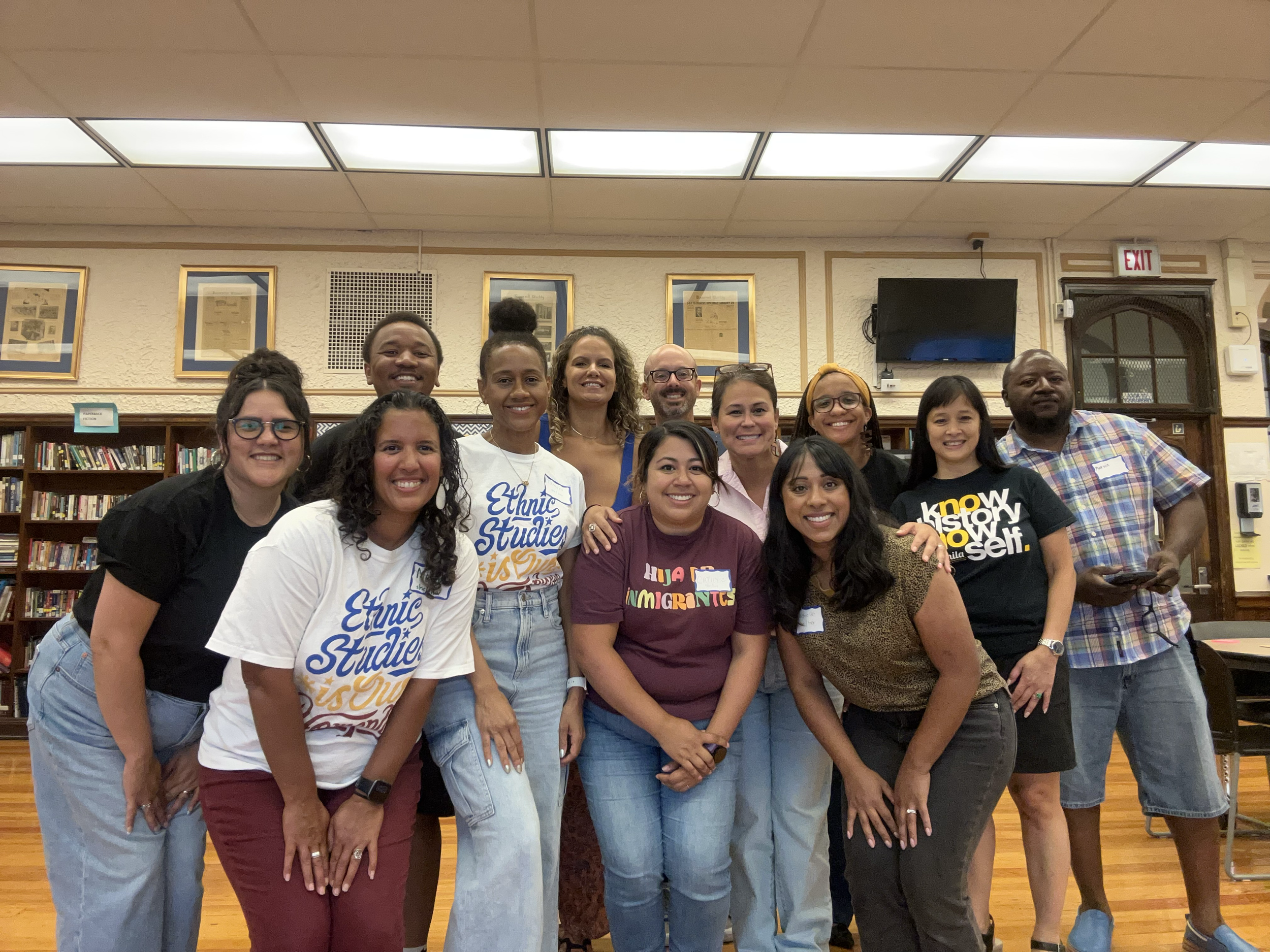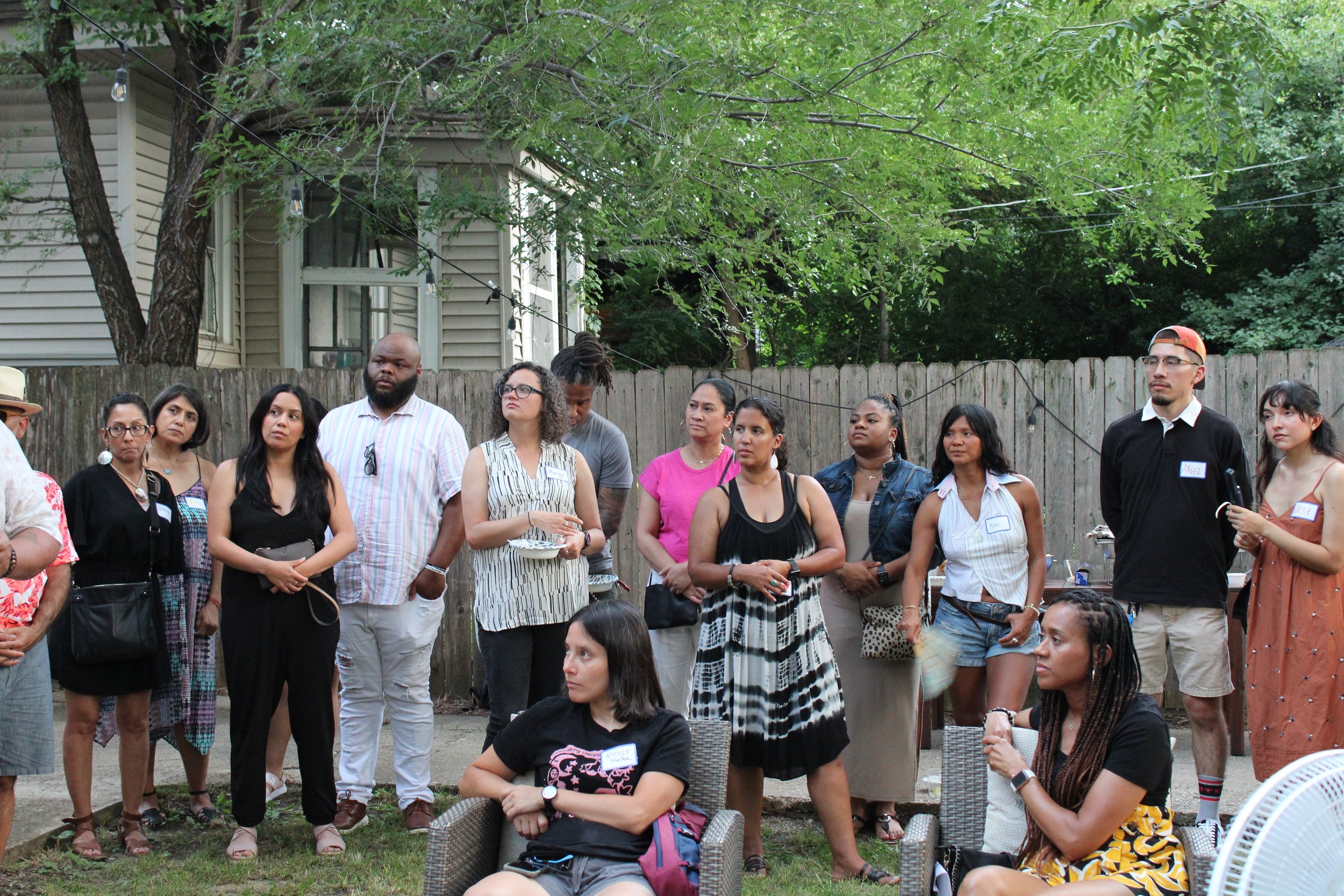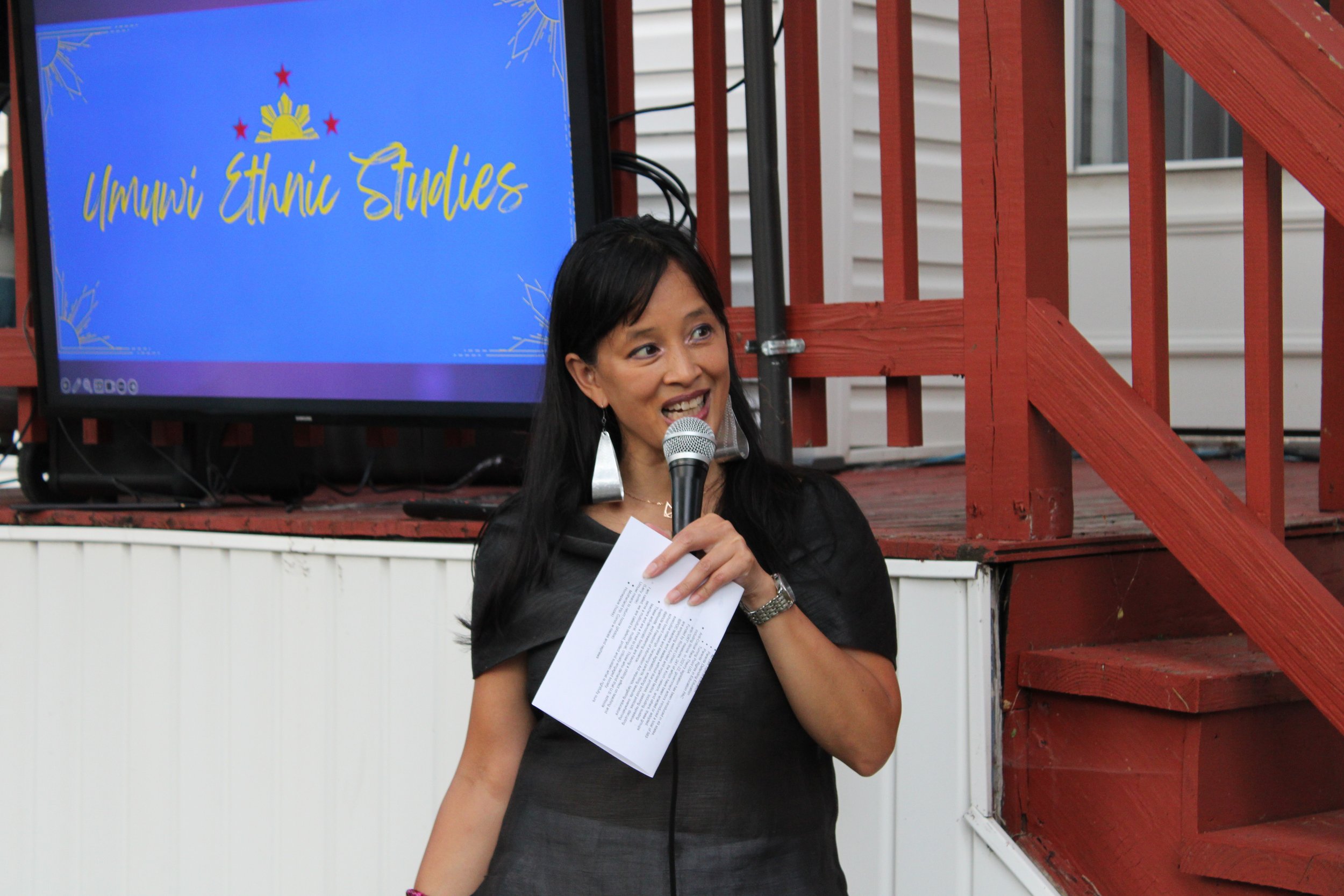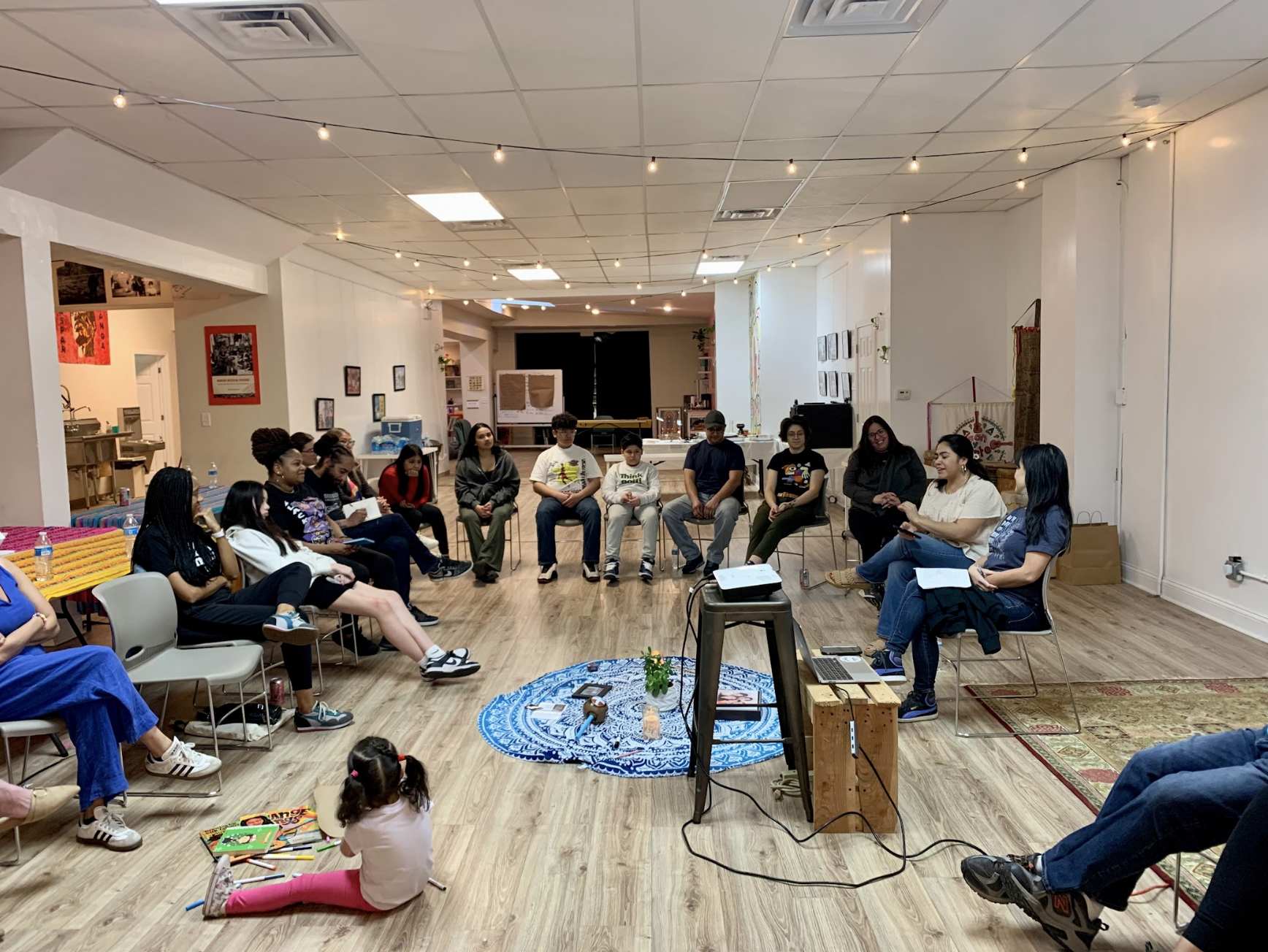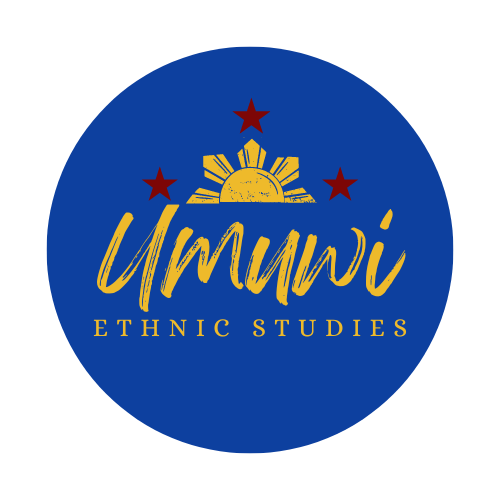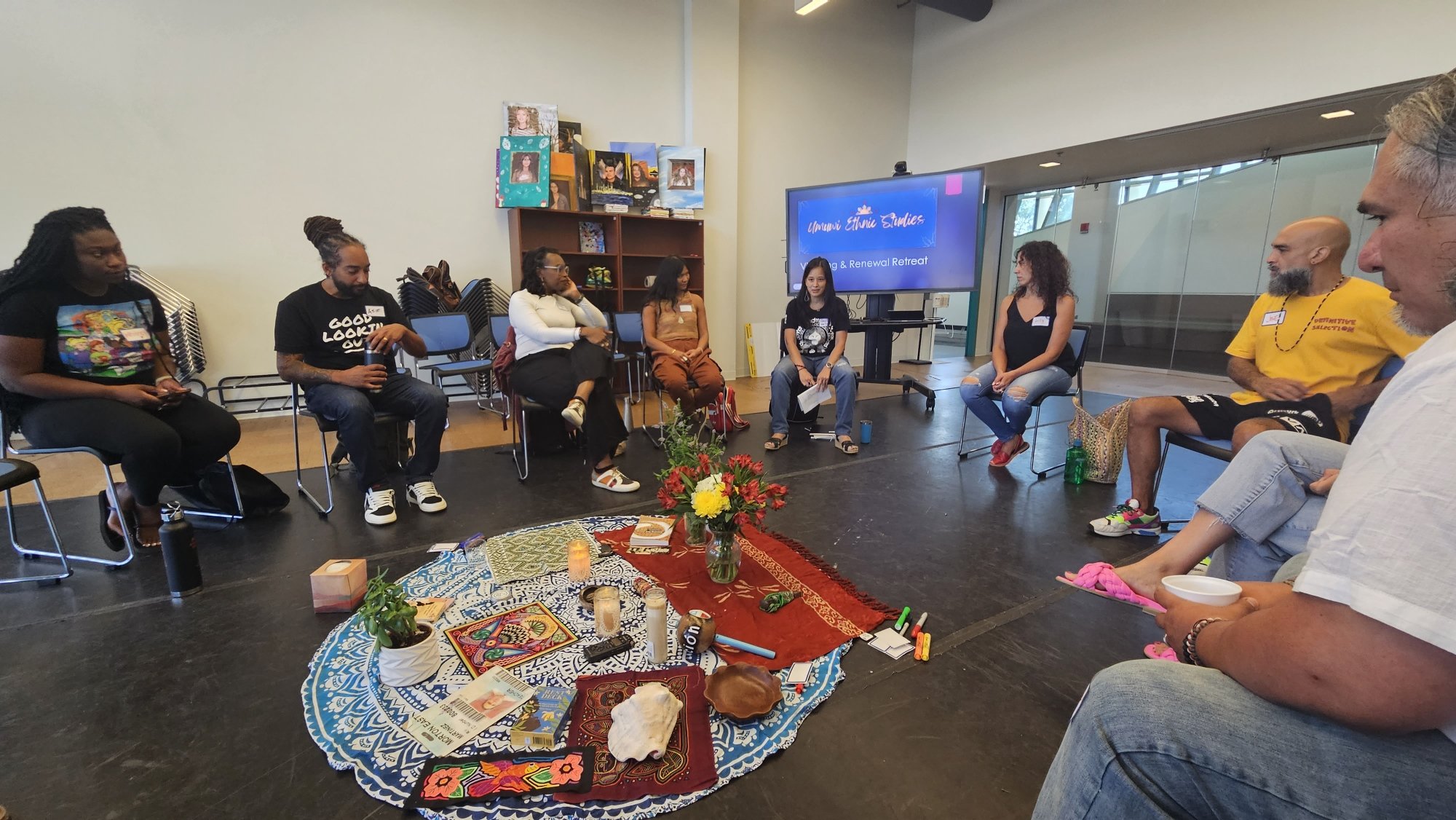
umuwi: to return home
About Us
-
What is Ethnic Studies?
Ethnic Studies is an interdisciplinary field that explores the first-person narratives, his/her/theirstories and cultural wealth of BIPOC and multiply marginalized peoples, communities and social movements. It aims to affirm our humanity, promote critical understanding of systemic oppression, and foster empathy and solidarity through anti-racist, culturally responsive, inclusive and liberatory education. Ethnic Studies acknowledges the racist conditions under which BIPOC youth and educators live, labor and learn, and frames structural racism, not BIPOC people, as the problem to be solved.
-
Our Mission Statement
Umuwi (oo-moo-WE) is a Tagalog word meaning “to return home.” Our mission is to strengthen, protect and sustain Ethnic Studies in Chicago and Illinois.
We are doing so by building a homeplace - a sustainable community of care, professional learning and advocacy - for Ethnic Studies in Chicago and Illinois.
-
Vision Statement
We hold a vision where all BIPOC young people can see and hear themselves and their communities’ stories of love, joy, resistance, and freedom at the center, not at the margins, of our classrooms, schools, homes and community spaces.
We are fighting for strong, racially just public schools in Chicago and Illinois where students engage in an honest and inclusive education about our histories, read books that accurately represent their experiences, and get the resources and support they need so they can work together and across difference to tackle our greatest social challenges.
-
What We Do
Our work broadens awareness of Ethnic Studies as a liberatory alternative to traditional schooling methods; expands the practice of Ethnic Studies in Chicago schools and youth-serving spaces; and protects Ethnic Studies through a multi-tiered strategy which includes:
Building communities of professional development, wellness and care. In these communities, educators and youth workers deepen their practice of Ethnic Studies methodologies. Educators and youth workers need a community to come home to: spaces to sustain their hope, their wellness, and their commitment.
Building institutional capacity for Ethnic Studies. Through consultation and coaching, formal and informal leaders will develop and enact strategic plans for shifting educational and youth-serving institutional culture, curriculum, practice and advocacy to be culturally and community responsive and anti-racist.
Building knowledge and skills to counter “anti-woke” actions and attacks at the local, state and national levels, and to ensure robust implementation of the Illinois Instructional Mandates, the Illinois Culturally Responsive Teaching and Leading Standards, the Racism-Free Schools Act, and other policies that promote and protect racial and social equity and justice.
-
Why What We Do Matters
Umuwi Ethnic Studies matters because it defends against the harmful impacts of the "anti-woke" movement, which seeks to erase Black, Indigenous, and other BIPOC histories, suppress LGBTQIA+ rights, and undermine educational equity. In a time when powerful forces are actively working to deny BIPOC and multiply marginalized peoples their human dignity and right to belong, Umuwi stands as a critical force for truth and justice in education. By protecting Ethnic Studies and supporting educators, youth, and families, Umuwi fights to ensure the psychological and physical safety, well-being, and healthy identity development of young people. This work empowers communities to demand an education that affirms their value, honors their histories, and prepares them to build a more just and loving world.
-
"I enjoyed each of the sessions. I've been here for 25+ years and this is the first time that I can say that. It was especially useful that we began each session with a true discussion among peers. Everyone was heard, and everyone's ideas/points of view were validated. Thank you for that. This has been an enlightening experience.
Middle School Social Studies Teacher
-
"I have done 4 PD’s this summer and this was by far the best."
Assistant Dean of Culture
-
“I’m going into my first full school year of teaching Ethnic Studies, so thank you for the frameworks, resources, and community of educators! I feel much more supported and connected.”
High School Ethnic Studies Teacher


